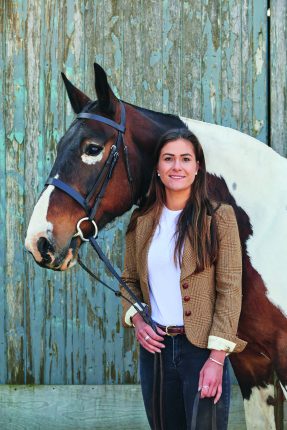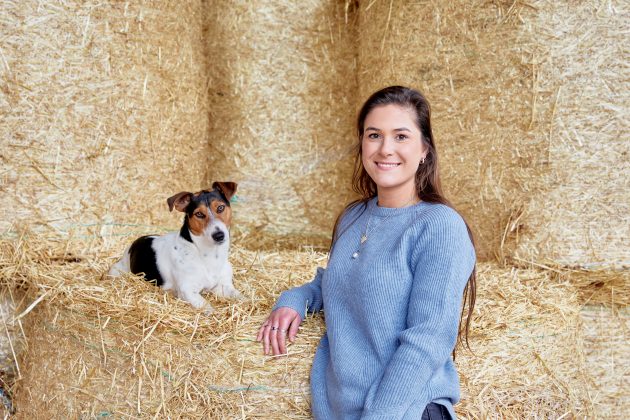The fifth-generation farmer on catching the hunting ‘bug’ and breaking the stigma around mental health in farming and rural communities

Hunting began rather by chance for my twin sister and me. Hailing from Yorkshire but with some of the more renowned hunts, such as the Middleton or the Bedale, mostly out of range, we took our first day with the York & Ainsty North after one of the Masters called in to our family farm to collect some hay. He suggested that we come along to the Meet (the very next day) and, thankfully, my parents only required a small amount of persuasion. Frantic cleaning of both tack and pony ensued.
For us, though, it wasn’t a case of being ready for second horses; much to everyone in the field’s amusement, we had second jockeys. This saw my father desperately trying to keep up with a 10-year-old girl on a pony who was adamant she was not handing over the reins to her sister. The Meet was at Ribston Park, hosted by the Dent family, and I remember there being plenty of jumping.
This day confirmed that I had the ‘bug’. Indeed, so keen were we to be involved, we have walked several couples of foxhounds from the York & Ainsty North and beagles from the Claro and Catterick packs. The first dog hound I walked, Agent, went on to be successful at the Great Yorkshire Show. To know that you have had a hand in helping that success is a privilege. Now, with full-time work on the farm and my endeavours in the wider rural community, I lack the time to hunt as much as I’d like but take days whenever I can, most recently with the College Valley & North Northumberland.
Before returning to work on the family farm, where I am the fifth generation, I pursued a degree in Human, Social and Political Sciences at Cambridge. Knowing that I wanted to return to something rural, I headed to the Royal Agricultural University to complete my MSc in Estate Management. For a time afterwards, work was in Oxfordshire, so I followed the VWH on foot when I could. But, as often happens, I was drawn back to Yorkshire.

Family illness took me back to the farm earlier than planned but it was important to see the move as an opportunity rather than a sacrifice. Yes, I was losing financial security and the certainty of a relatively normal work-life balance, but I was also placed in the fortunate position of having my dream job at the age of 26. I had a real chance to make a difference to the future generations on our farm and, I hoped, the wider rural community.
We find ourselves in a challenging and worrying time. While farmers and gamekeepers are in part responsible for the beautiful landscape that the public enjoys, increasing numbers of previously diminishing species and production of sustainable food, scrutiny is at an all-time high. More and more, the impact that this has on mental health is being noticed.
Once I became aware of the state of mental health in farming and rural communities, I wanted to try to break some of the stigma around this subject. I co-host a podcast that aims to highlight what really goes into producing our food and bridge the gap with the public. Whatever the theme of the episode, be it diversification or dairy farming, mental health has become a recurring discussion. Reaching a farming and non-farming audience, the podcast proved an ideal platform to tie in with Yellow Wellies, a charity dedicated to raising awareness of farm safety and mental well-being in farmers.

The need to talk about mental health in rural communities is being recognised beyond the countryside. Earlier this year, I was glad to have the chance to speak on both regional news channels and BBC Breakfast to help people understand the unique struggles for people living and working in the countryside. There can be a misconception of an idyllic life led by those who live in rural communities or spend their leisure time hunting or shooting; however, there are often things hiding beneath the surface that can be consuming but are difficult to broach.
TOP TIP: Give support and take advice. This has stood me in good stead in my farming career, on the hunting field and in terms of mental health. It can feel easier to stay silent rather than place a burden on someone else, but seeing the fieldsports community as a listening ear is vital.
Support is available from Yellow Wellies, the Farming Community Network, the Royal Agricultural Benevolent Institution and the DPJ Foundation. Follow Rebecca Wilson on Instagram @rebeccawilson722
Thank you to Dubarry for supporting Sporting Dianas in fieldsports. See Dubarry’s range of sporting clothing and footwear here.




